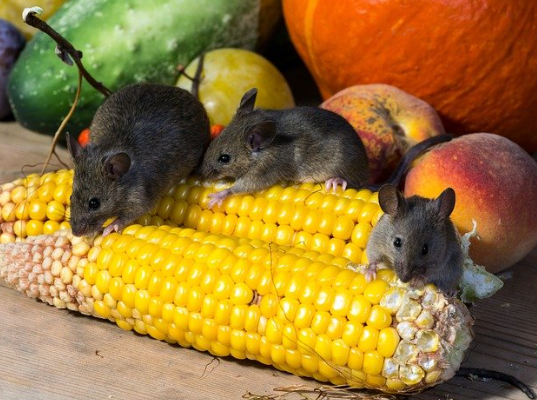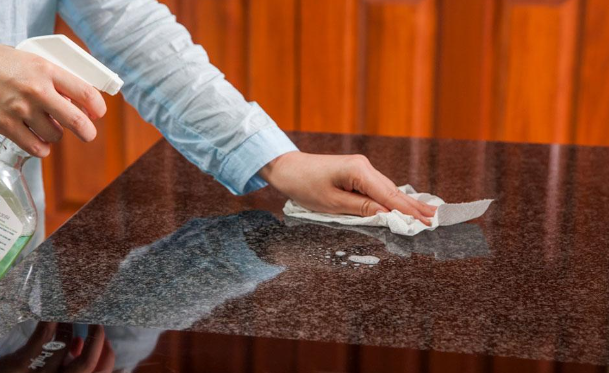What Are The Odds Of Having One Mouse
- tamash0
- Sep 3, 2023
- 5 min read
Have you ever wondered the odds of having just one mouse in your house? It's a question that many of us may have pondered when we spot those tiny droppings or hear the faint scurrying sounds in the walls. What are the odds of having a mouse?
Let me tell you, the odds are not as straightforward as you might think. When it comes to mice, one thing is for certain - they are masters of stealth and secrecy. These tiny creatures can easily slip through the smallest cracks and crevices, making it difficult to determine how many have taken up residence in your home.
While you may initially spot a few droppings, it's important to remember that mice are prolific breeders, capable of producing litters of up to a dozen baby mice every three weeks. So even if you think you've only seen evidence of one mouse, there's a good chance that there are more lurking in the shadows.
In this article, we will explore the factors that influence the odds of having just one mouse in your house and how to tell if you have a larger infestation on your hands.
So, let's dive in and uncover the secrets of these elusive creatures and the likelihood of encountering just one of them.
How many droppings does one mouse leave
Did you know that just one mouse can leave hundreds of droppings in your home? It's hard to believe, but these tiny creatures are incredibly prolific when it comes to leaving their mark.
Mice droppings are small, dark, and cylindrical in shape, resembling grains of rice. They are typically found in areas where mice are active, such as along baseboards, in corners, and near food sources. If you spot even a few droppings, it's a clear sign that you have a mouse problem that needs to be addressed promptly.
Now that you know how many droppings one mouse can leave, you might wonder what the odds are of having one mouse in your house. If you've seen droppings or other signs of mouse activity, the odds are high that you have more than one mouse.
Mice are social creatures and tend to live in colonies, so where there's one mouse, there are likely others. It's important to take swift action to eliminate these pests and prevent further infestation.
What are the odds of having one mouse in your house
It's incredibly unsettling to discover a single mouse scurrying around our house. The thought of one mouse may not seem too alarming, but it's important to understand that where there is one, there could be more.
However, it's also possible that we only have one lone mouse. So, what are the odds of having just one mouse in our house? Let's take a closer look.
- Firstly, it's important to consider the behaviour of mice. These creatures are social animals, and they prefer to live in groups. So, the odds of having just one mouse in our house are relatively low.
- Secondly, mice are excellent breeders. A female mouse can have up to 10 litters per year, with each litter comprising around 6 to 8 offspring. This means that if we have one mouse, it is highly likely to have a growing family.
- Lastly, mice are skilled at hiding and can easily go unnoticed. They can squeeze through small openings and find their way into our homes. If we see one mouse, there's a good chance that others are hiding in the walls, attic, or basement.
Considering these factors, it's important for us to be proactive in determining if we have more than one mouse in our house. By taking the necessary steps to investigate further, we can ensure the safety and cleanliness of our home.
How to tell if more than one mouse
Pay attention to signs like droppings, gnawed wires, and the pitter-patter of tiny feet to determine if there are multiple mice in your house. One mouse can leave behind a trail of droppings, but if you notice an abundance of droppings in different areas of your house, multiple mice are likely present.
Additionally, mice have a habit of chewing on wires, so if you spot any frayed or gnawed wires, it could be a sign of a larger infestation. Another giveaway is the sound of scurrying little feet. If you hear the distinct pitter-patter of mice moving around your house, it's a strong indication that more than one mouse is present.
It's important to be proactive if you suspect multiple mice in your house, as they can reproduce quickly and cause further damage. Start by thoroughly inspecting your home, paying close attention to areas where mice are likely to hide, such as behind appliances, in crawl spaces, or in dark corners. Look for any additional signs of mice, such as chewed cardboard or nesting materials.
Set up multiple traps in strategic locations to increase your chances of catching more than one mouse. If you manage to catch one mouse, continue monitoring the situation to ensure there are no others. Remember, if left unchecked, a small mouse problem can quickly turn into a full-blown infestation, so it's important to take action as soon as possible.
Frequently Asked Questions
Are mice more likely to leave droppings in certain areas of the house?
Mice are more likely to leave droppings in areas where they feel safe and can easily find food. Like breadcrumbs leading to a hidden treasure, these droppings can reveal the presence of unwanted guests.
Can mice cause significant damage to the structure of a house?
Yes, mice can cause significant damage to the structure of a house. They chew on wires, insulation, and wood, leading to electrical fires, water leaks, and weakened structural integrity.
How can I prevent mice from entering my home in the first place?
We must proactively protect our property to prevent pesky mice from penetrating our peaceful abode. Patching up any potential entry points, like cracks or gaps, and practising proper sanitation can significantly reduce the risk of unwelcome rodent visitors.
Are there any health risks associated with having mice in the house?
There are health risks associated with having mice in the house. They can carry diseases like hantavirus and salmonella; their droppings can cause allergies and asthma symptoms.
What are some effective methods for removing mice if there is an infestation?
We've found that using traps baited with cheese and peanut butter works like a charm to get rid of a mouse infestation. Just make sure to seal any potential entry points to prevent future infestations.
Conclusion
In conclusion, when it comes to the odds of having one mouse in your house, it seems that the chances are quite slim. However, it's important to remember that even a single mouse can quickly multiply, so taking immediate action is crucial if you suspect a mouse infestation. Learn why are these bugs in my house.
By paying attention to the number of droppings and other signs of mouse activity, you can determine whether you have just one mouse or if there may be more lurking in the shadows.
Remember, prevention is key! Keep your home clean, seal any entry points, and set up traps or hire professionals to help you eliminate these pesky pests. Don't let a single mouse turn into a full-blown infestation.
Stay vigilant and act as soon as you notice any signs of mouse activity to ensure a home that is mouse-free. With a little effort and attention, you can increase the odds of keeping these unwanted guests at bay. So, don't let one mouse become a mouse mania. Take control of the situation and enjoy a mouse-less home!






Comments